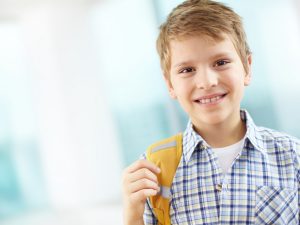
Academically, at this stage the School attaches great importance to strengthening and improving the knowledge and skills acquired in the Primary stage, increasing these gradually and according to age, together with the levels of demand placed on them, and equipping students with the necessary tools to address the challenge.
During this stage, students work on different projects which complement their curricular activity (charity projects, scientific projects, technological projects, international projects, etc.).
Together with the highest development in other essential areas, the level of immersion in English as the language of instruction in several subjects can be emphasised, as is the continued teaching of French of German as a second foreign language.
This is done with the objective of guaranteeing the optimum preparation of our students for the future, granting huge importance to academic and professional guidance that will enable them to choose the field they would like to work on, and to do so with the highest possible skill level.
In adolescence, a time when students begin to demand increasing degrees of independence and freedom, it is also essential to educate them in the sense of responsibility. The development of a critical capacity in regards to their own actions is essential for achieving of «responsible» freedom. In this framework, we continue to work in the field of social and emotional education and we implement specific programmes to address issues of particular importance for students of this age.
